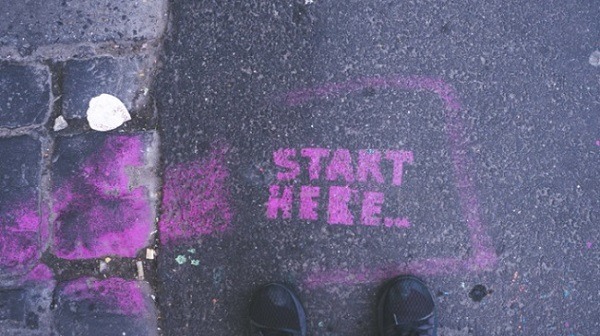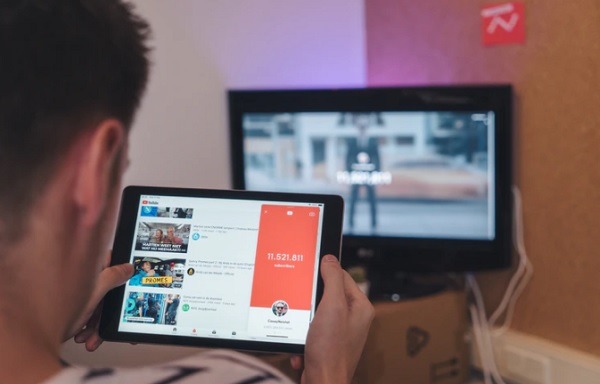Procrastination isn’t something you solve by just doing something. If it were that easy, it wouldn’t be a problem at all. For some people, it’s actually partly hereditary. Of course, it can be caused by a variety of reasons, but the important thing to know is that you can stop procrastinating. You just need to take some actionable steps to learn how to stop procrastinating and change your mindset to a more productive one.
1. Lay Out Tasks Clearly

Lists are one of your best tools to stop procrastinating, but you have to make lists the right way. If you’re already procrastinating, even when making a list, you’re not alone. However, it’s the first step to changing this frustrating habit. Create detailed lists, even if that means adding steps or sub-tasks, to make tasks seem less overwhelming so that you’ll be more likely to tackle them.
2. Get the Worst Over with First
If you’re dreading a certain task, you’ll procrastinate all day, even on smaller tasks. So make yourself do that one major task first. This could be your most important task or something small, but it just keeps holding you back.
Every night before you go to bed, write down the task you’re dreading most. Also, write down the one task that is most important for the day. Often, they’re one and the same. If they’re two separate tasks, tackle them first. If you wait to schedule your day until that morning, you’re more likely to procrastinate and list something else you’d rather do.
3. Set Priorities

Often, procrastination is just not knowing where to start. A to-do list helps you break things down, but it may not help you set your priorities. Creating an Eisenhower Box helps you quickly organize your tasks to see what’s most important and urgent versus what you may not need to do at all. Once you start using a system to set priorities, you’ll see your productivity increase too.
4. Figure Out the Reason
Sometimes the key to ditching procrastination is figuring out the root cause. It could be that you’re bored or something more serious, such as depression. Once you know the cause or causes, it’ll be easier to identify triggers and overcome procrastination.
For example, if you feel like you’re simply not good enough at something, write down how you could change that, such as seeking help. Remember, even those people who seem amazing at a certain task had to learn it at some point too. Plus, if you start working on it a little at a time, you’ll gradually improve.
For more serious issues, it’s okay to talk to seek help from a therapist. For example, depression can cause you to procrastinate no matter what other steps you take. Talking to a professional can help you learn ways to manage your depression and stop procrastinating.
5. Ditch the Distractions
If you want to stop procrastinating, get rid of temptations. When you’re already looking for an excuse not to do something, a notification on your phone, a new email, something interesting on TV, or any other distraction will do. Honestly, it could be a ding for a spam email, and you’d eagerly check it out.

Create an environment without distractions. Turn the phone and TV off. Close your email for a while. Even if you need your phone and email for work, set aside certain times to turn them off to get more done. You can even use Chrome extensions to block things like YouTube.
6. Work in Segments
Working for eight hours straight seems impossible. If the idea of trying to focus for even an hour at a time makes you run from a task, try working in segments. This is one of the easiest ways to stop procrastinating. Even dedicating just 10 minutes at a time is a great start. Gradually add five minutes to your time to increase your productivity and stop procrastinating even more.
You can set up your own system, but the Pomodoro Technique is a popular productivity method. Plus, there are plenty of apps for your phone and PC to help you use it. You only have to work 25 minutes at a time. Of course, if 25 minutes seems like too much, start with shorter segments.
7. Take a Quick Break
Too many breaks is a bad thing, but trying to push yourself too hard may just make you procrastinate more. You need regular breaks to help refresh your mind. Plus, if you’re procrastinating out of boredom, it helps to get away from your work, even if it’s just a few minutes at a time.

You can even make your breaks productive to help you more. Creating a list of fun, restorative activities helps you make the most of your break while decreasing procrastination.
8. Do One Thing
Often, you’ll hear “just do it already.” While that won’t magically make you stop procrastinating, there is something to just starting. You don’t have to do everything. However, pick just one thing, no matter how small, and start there. Checking something off your to-do list is inspiring and rewarding. This makes you want to feel rewarded again so that you will want to do the next thing.
9. Change Your Mindset
Do you procrastinate because you feel like you’re not good enough? Maybe you’re a perfectionist, and if you don’t experience it with a task, you’re afraid that you’ve failed. Whatever the reason, stop procrastinating by changing your mindset.

Meditation is a great way to do this. There are numerous free meditation apps to help you out, too. You can also try self-empowerment strategies to boost your confidence and forget your fears. You could also start a new hobby to give yourself something to look forward to and become happier and more productive in general.
10. Gamify Your Tasks
What if your work was a game? Would you be more likely to play instead of work? Gamification is a concept that helps you stop procrastinating by turning your daily tasks and goals into a game.
You typically use an app to list your tasks, goals, and even habits you want to create. And yes, being more productive can be one of the habits. Then, your character levels up as you check things off your list. Some apps have built-in challenges, social aspects, and rewards to buy. Others allow you to create your own rewards to customize the experience.
The great thing is that these apps also have reminder features (you can also just use reminder apps if you’d like). Habitica and Do It Now are two great options to help you gamify your workday.
11. Break Everything Down
If you’re fine on smaller tasks but tend to procrastinate on larger tasks, you’re definitely not alone. Larger tasks and projects are intimidating. They mean more work, they make it harder to stay focused, and they take longer. It’s much easier to just do all the little tasks. Plus, checking off all those smaller and quicker tasks seems more satisfying.

So, take that same approach and break down larger tasks and projects into smaller pieces. Maybe you have a big report to create. Break it down into several small tasks, such as gathering data, preparing graphics, writing the report (you can even break that into sections), editing, and submitting. As you check off each smaller task, it’s just as satisfying, but you’re really accomplishing the larger tasks.
12. Go Somewhere Else
If your days all seem to run together, boredom may be why it’s so hard to stop procrastinating, or maybe your workplace is simply too distracting. If possible, go somewhere else. If not, you may be able to decorate your space to make it seem different. Add a plant or some pictures. See if you can wear headphones to block out distractions.
If you work remotely, find other places to spice up your work week. If it’s nice outside, go work on your back porch. Visit your local coffee shop.
Also, as a side note, skip the pajamas and working in bed if you’re working from home. It’s far too easy to associate both of those with relaxing, making you want to procrastinate on work.
13. Allow Time to Procrastinate

It sounds counterintuitive, but it can be the perfect way to stop procrastinating when you need to. Positive procrastination actually helps you do more. By giving yourself the freedom to procrastinate, you feel better about doing other things. This means you’re more likely to get other tasks done. Plus, when deadlines are getting closer, it’s easier to shut out distractions and come up with creative ways to still get your procrastinated tasks done. It doesn’t work for everyone, but it may work for you.
Another approach is to allot time for procrastination during your day. For every task you don’t want to do, reward yourself with 10 to 15 minutes of procrastination.
You can stop procrastinating. Just be compassionate with yourself and patient. It may take time, but you will be able to accomplish it.
Image credit: Wikimedia Commons by Vic
